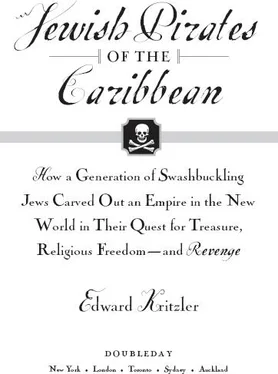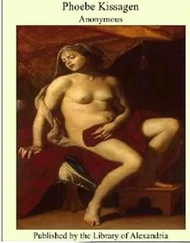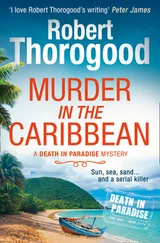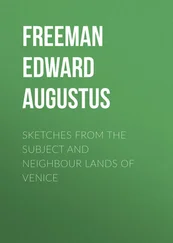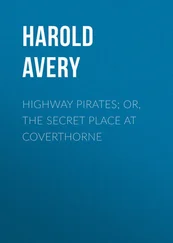Edward Kritzler - Jewish Pirates of the Caribbean
Здесь есть возможность читать онлайн «Edward Kritzler - Jewish Pirates of the Caribbean» весь текст электронной книги совершенно бесплатно (целиком полную версию без сокращений). В некоторых случаях можно слушать аудио, скачать через торрент в формате fb2 и присутствует краткое содержание. Год выпуска: 2008, ISBN: 2008, Издательство: Knopf Doubleday Publishing Group, Жанр: Старинная литература, на английском языке. Описание произведения, (предисловие) а так же отзывы посетителей доступны на портале библиотеки ЛибКат.
- Название:Jewish Pirates of the Caribbean
- Автор:
- Издательство:Knopf Doubleday Publishing Group
- Жанр:
- Год:2008
- ISBN:9780385528368
- Рейтинг книги:3 / 5. Голосов: 1
-
Избранное:Добавить в избранное
- Отзывы:
-
Ваша оценка:
- 60
- 1
- 2
- 3
- 4
- 5
Jewish Pirates of the Caribbean: краткое содержание, описание и аннотация
Предлагаем к чтению аннотацию, описание, краткое содержание или предисловие (зависит от того, что написал сам автор книги «Jewish Pirates of the Caribbean»). Если вы не нашли необходимую информацию о книге — напишите в комментариях, мы постараемся отыскать её.
Jewish Pirates of the Caribbean — читать онлайн бесплатно полную книгу (весь текст) целиком
Ниже представлен текст книги, разбитый по страницам. Система сохранения места последней прочитанной страницы, позволяет с удобством читать онлайн бесплатно книгу «Jewish Pirates of the Caribbean», без необходимости каждый раз заново искать на чём Вы остановились. Поставьте закладку, и сможете в любой момент перейти на страницу, на которой закончили чтение.
Интервал:
Закладка:
Although this finding linked my sponsor to Moses, there was nothing in the historical record that identified Abraham Cohen as an Henriques, much less as the brother of the notorious pirate. As noted, Cohen never used his Portuguese name. A sworn enemy of Spain, he had dropped his oppressor name in favor of his ancestral one, and signed his name in Hebrew whenever possible. In every period document dealing with his activities in Amsterdam, Brazil, and England, he is identified simply as “Abraham Cohen.” Apparently only in a legal dispute with his brother was he required to disclose their relationship.
Going by different names, the siblings at first belonged to different synagogues in Brazil. Abraham Cohen was an officer of Recife’s Zur Israel, while Moses founded Magen Abraham on his private island. Their attending separate synagogues, as well as the earlier absence of anything linking the brothers, might be indicative of an estrangement. Although Abraham’s leaving his land in Moses’s care could point to a reconciliation, the sad truth is that when Cohen returned four years later, whatever positive feelings may have been rekindled between them were squashed when Moses took his brother to court.
An amateur genealogist, Ainsley knew his family was long resident in Jamaica. Previous to these findings, he had traced his line to an ancestor coming out of Amsterdam in 1740. We now agreed that his Dutch forebear had apparently emigrated to Jamaica to join relatives already there.
In the court settlement, Abraham agreed to give Moses forty farm animals for watching over his other property on the Rio Cobre during his absence. Strangely, a lower court did not adjudicate what should have been an insignificant case. Instead, the verdict was rendered by Jamaica’s chief justice, the island’s former governor Thomas Modyford. What did all this portend? Moses was never part of the gold mine deal. Was he trying to horn in on his brother’s action? After a lifetime fighting their people’s foes, the brothers were in their twilight years; in 1675, Moses was seventy-two, and Abraham two years younger. A few months later, Cohen sold both the valley and river land. Was brotherly discord the reason?
Since then, Jamaica’s Ministry of Mining has reported that soil samples from Cohen’s valley register “significant anomalies for gold.” This finding led me to consider that Cohen, banished for his failure to find the mine, either had found it, or believed he had. But not satisfied to divide it with his partners, he had come back to claim it for himself.
There were two significant objections to my thesis. Edgar Samuel, chairman of the Jewish Historical Society of England, raised them when I sent him my findings in hopes the JHSE might publish them. Back in 1936, his father, Wilfred S. Samuel, had written the first well-researched account of this episode, one that basically concurred with Beeston’s judgment. His son now asked me: How could Cohen bypass Jamaica’s authorities to both secretly mine the gold and transport it off the island? These were pertinent questions that at the time I could not answer. Instead, I consigned them to the recesses of my mind until, on a recent visit to the Jamaica Archives, I again struck pay dirt in the form of previously overlooked documents that definitively answered one of his questions, and allows me to speculate on the other.
I still have no conclusive answer as to how Cohen thought he could operate the mine without attracting unwanted attention. However, the hidden valley was unoccupied and undeveloped, and the area surrounding it was sparsely settled and largely abandoned after a slave rebellion in 1676. In addition, Cohen’s neighbor, Solomon de León, was another Jew who may have been in league with him. 2These facts may have allowed Cohen to believe he had sufficient privacy to pursue a mining operation.
What troubled me more was Edgar Samuel’s other question. How would it have been possible for Cohen to clandestinely transport the ore across the island from the mine to the sea? I found the answer in the archival vault, in a site map of the aforementioned riverfront property that Cohen bought at the same time he purchased the valley land. Its northern border was on the Rio Cobre, a major waterway that runs from Cohen’s northern valley to the southern sea. When I walked the land I found it was on a deep bend in the river, perfectly sited for a pier to transfer the ore.
On this book’s Web site (www.JewishPiratesOfTheCaribbean.com) are the documents that support my thesis: (1) Lord Clarendon’s transcription of the Spanish spy’s note to Buckingham locating the mine in the area of Cohen’s land; (2) The 1662 contract Cohen and Israel signed with Charles II to discover and work the mine for one-third of the gold; (3) Charles’s 1664 banishment decree expelling Cohen and his partners from Jamaica for not finding the mine, and demanding the return of his necklace; (4) Cohen’s 1671 deed for land in an unsettled region of Jamaica; (5) Cohen’s 1671 deed on a bend in the river running south from the valley to the sea; (6) Jamaica’s Ministry of Mining test findings verifying gold deposits.
I don’t know if the mine exists or not. But as the Spanish governor of Jamaica wrote to King Philip IV after the English conquest:
Although it is not known now where the mine is, it is a well-established fact that when His Excellency the first Admiral of the Indies [Christopher Columbus], discovered this island, he extracted much and of big karat, and today on the island there are still some old jewels made from that gold…and some old pits of that gold are still there. 3
Such endorsements as this persuaded four kings and their ministers that the legendary mine was real and was to be found somewhere in Jamaica. Abraham Cohen’s covert return to the island, his purchase of land in a river valley in an area that was once the province of Columbus’s Indian ally, and the Ministry’s finding there of “significant anomalies for gold” give credence to the legendary mine’s existence. Cohen certainly believed it was there. His descendant Ainsley Henriques is more skeptical: “The gold is in the story,” he says. Perhaps, but just in case, Ainsley and I recently took out a mining license for the valley to see if, as the Spanish spy disclosed to Buckingham, where “the Earth is black, Rivoletts discover the source of the Mine.”
In Lord Clarendon’s transcription of Don Hermyn’s confidential report, the mine’s location is disclosed in the following paragraphs in geographical and numeric code:
The Secret golden Mine which hath not yet been opened by the King of Spain or any other [is] Two leagues from the Sea which faceth the gulf of Mexico in Jamaica on the point which faces Hondura leaving the island of Cuba at the eight hand the great Coast of the land towards Nombre de Dios at the left turning your back. Its at the point equally betwixt Cuba and Hondura the Earth is black, Rivoletts discover the source of the Mine…The gold is found neere to the superficies of the Earth and slides downe in the Rivers or is found in the Rocks. The Vayne between the Rocks is but two Inches wyde and is for the most parte towards the East.
The spy advised Buckingham:
[Enter the island] at an open land near a 01: 94: 01: a. 01. on the coast of 01 . aa . 94 . 66 a of right against the Island a a .01 . 94 . 61. 01 . 94 66. 13 . 01 The prime formula which are to be called upon by word 24. 19. p.p. 000. nl pp . pp . 66. pp are the 11 . 61 94 . 61. 91 1 or 22 . 4. 85. or they [the Portugals] will show you there . 61 . 61 . 01 . 60 . nl 85 and Treasures! which I have seen and shall personally attend to discover when I shall be put on the place and secured of proposition which I do present therein according onto agreement.
We leave it to the reader to decipher these codes, and invite the first who does so to join our quixotic search for the legendary gold mine of Columbus.
Читать дальшеИнтервал:
Закладка:
Похожие книги на «Jewish Pirates of the Caribbean»
Представляем Вашему вниманию похожие книги на «Jewish Pirates of the Caribbean» списком для выбора. Мы отобрали схожую по названию и смыслу литературу в надежде предоставить читателям больше вариантов отыскать новые, интересные, ещё непрочитанные произведения.
Обсуждение, отзывы о книге «Jewish Pirates of the Caribbean» и просто собственные мнения читателей. Оставьте ваши комментарии, напишите, что Вы думаете о произведении, его смысле или главных героях. Укажите что конкретно понравилось, а что нет, и почему Вы так считаете.
